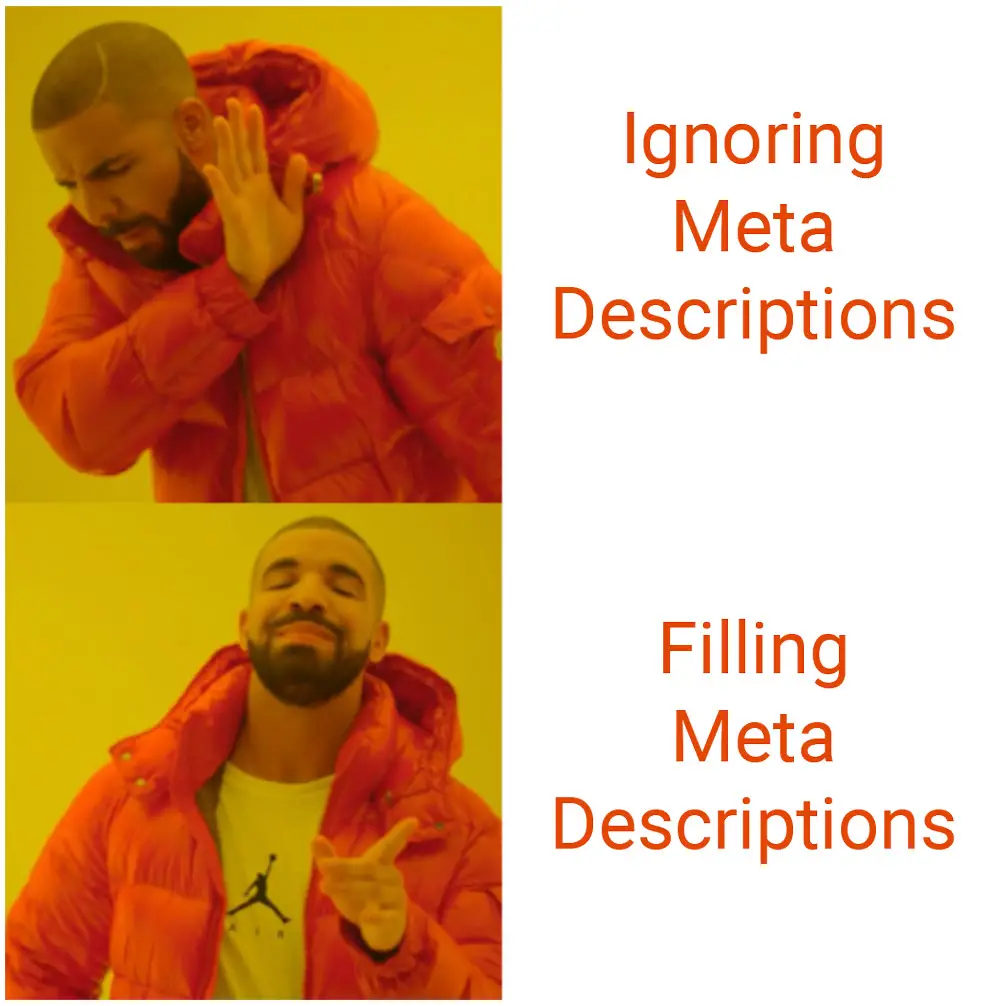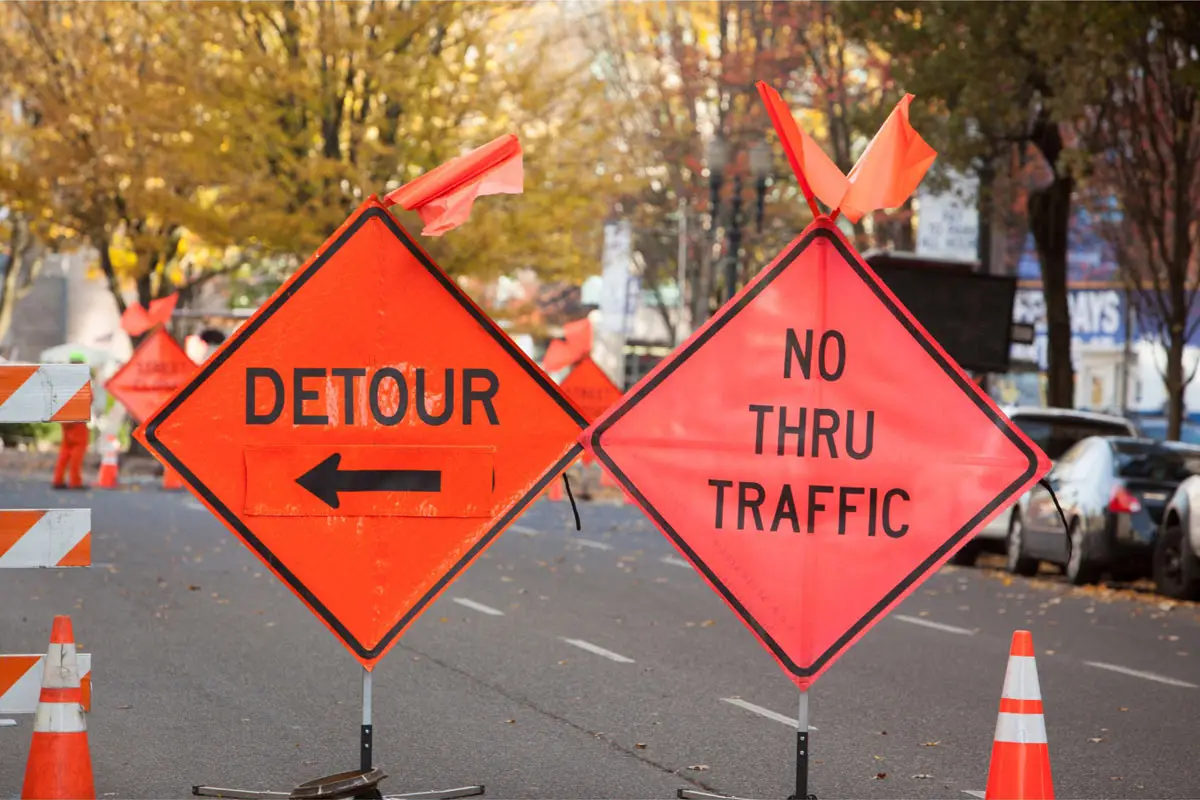5 Common SEO Mistakes That Could be Costing You Traffic
...And how easy they are to fix!
Search engine optimization (SEO) is an essential part of any digital marketing strategy. It helps businesses improve their online visibility, drive traffic, and increase conversions. However, it is easy to make mistakes that can negatively impact your SEO efforts. In this article, we will explore five common SEO mistakes that could be costing you traffic and how to avoid them.
Over Optimization or Keyword Stuffing
One of the most common mistakes we see businesses make when they know the keyword they want to target is over optimizing for that keyword. Using a keyword excessively on a webpage in hopes to manipulate search engine rankings is known as keyword stuffing. It simply does not work like that and can actually negatively affect your rankings.

Keyword stuffing may include adding the same keyword over and over, using irrelevant keywords, or even using hidden text to deceive search engines (surprisingly, people still try to do this). While keywords are essential for SEO, overusing them can harm your rankings and make your content appear spammy.
To avoid this mistake, focus on creating high-quality content that naturally incorporates relevant keywords. Use variations of your target keywords, and avoid using the same keyword excessively in your content. Also, ensure that your content provides value to your target audience and is easy to read and understand.
Keyword Cannibalization
Keyword cannibalization occurs when you have multiple pages on your website targeting the same keyword or phrase. It may be tempting to really target a keyword by writing many articles on the same topic but this can confuse search engines and reduce the effectiveness of your SEO strategy. The search engine may struggle to determine which page to rank for that particular keyword and end up not ranking either page.

To avoid this mistake, conduct a thorough audit of your website to identify any instances of keyword cannibalization. Consolidate similar pages into a single, comprehensive page targeting the main keyword or phrase. Ensure that each page on your website has a unique focus keyword, and avoid targeting the same keyword or phrase across multiple pages.
You can write multiple articles about a very similar topic but the rule of thumb is you should be able to categorize the keyword as a different unique search. If you can't do that the content should be combined into one more in-depth article. By doing this, you'll help search engines understand the unique value of each page on your website and improve your chances of ranking for your target keywords.
Ignoring Meta Descriptions
If you search this topic you will find people saying meta descriptions don't matter but that could not be further from the truth. Meta descriptions are brief snippets that appear under the page title in search engine results pages (SERPs). They provide a summary of the content on the page and can impact click-through rates.

If you want someone to click on your search result when it appears in the rankings, then you better write something compelling for your meta description that will inspire someone to click your result. CTR or Click Through Rate is a big ranking factor. Ignoring meta descriptions, using the same meta descriptions for multiple pages on your site, or leaving them blank can make it harder for search engines and users to understand your content.
To avoid this mistake, create unique and descriptive meta descriptions for each page on your website. Include relevant keywords, provide a clear and concise summary of the page content, and use calls to action to encourage clicks.
Ignoring User Experience
If you have put in a ton of time and effort getting people to your site but your user experience is terrible, people will leave. End of story. User experience plays a crucial role in SEO, as search engines prioritize websites that provide a positive user experience. And YES they are tracking this! Ignoring user experience can result in lower rankings, reduced traffic, and higher bounce rates.
When Google sees people visiting and leaving your site within the first 30 seconds, not clicking on anything, or slow load times, it will remove your site from the results faster than you can say chimichanga! (Sorry, I am hungry right now.) Think about it. Google wants to be known for offering people the best results for the searches people are making or people will start using a different search engine.

To avoid this mistake, make sure your site loads fast, grab your visitors' attention right away, provide relevant valuable information, offer quick answers when possible, and get them clicking on something early in their journey through your content. Use a clear and concise layout, optimize your images and videos, and ensure that your website is accessible to users with disabilities which includes optimizing for older people that need a bigger font or a bit higher contrast between the awesome background color your designer chose and the unique font color they picked.
Regularly test your website's user experience, ask for customer feedback, and make improvements as needed.
Forgetting About Analytics
Most people would not categorize this as an SEO mistake but hear me out. Analytics provide valuable insights into your website's performance, including traffic sources, user behavior, and conversion rates. Failing to track and analyze your website's data can make it harder to identify areas for improvement and optimize your SEO strategy. If you are wasting your SEO budget targeting a keyword that has never and may never provide you with a lead that converts then you are missing out on other traffic you could be targeting.

To avoid this mistake, use a reliable analytics tool like Google Analytics to track your website's performance. It is easier to set up than you think. If you have a WordPress website there are plenty of plugins you can install that make adding it to your site as easy as copying and pasting some text. Monitor your traffic sources, user behavior, and conversion rates and use this data to inform your SEO strategy. Regularly review your analytics data and adjust your strategy as needed.
Bonus SEO Mistake
Neglecting Off-Page Optimization
Truth be told, backlinks are one of the most important ranking factors. If you are in a niche with decent competition you are not going to rank without backlinks. I was not including this as an "easy-to-fix common SEO mistake" because the reality is acquiring high quality backlinks is not an easy thing to do on your own and this is the type of task best left to a professional. We have seen people destroy their site's ability to rank by buying cheap backlinks on Fiverr or from an email solicitation they received.
Quality backlinks such as guest posts written on niche, relevant, high-quality sites with real traffic or from influencer mentions that have active engaged audiences are the types of backlinks and brand mentions you want your site to have.
Off-page optimization actually covers all the practices you use outside of your website to improve your rankings, such as link building, social media marketing, building citations, and even press releases to name a few. Neglecting off-page optimization can limit your website's reach, reduce your authority, and make it harder or even impossible to rank for competitive keywords.

To avoid this mistake, focus on building high-quality backlinks from relevant websites, engage with your audience on social media, and participate in online communities related to your industry.
As always, we are here to help you with your comprehensive marketing strategy. If you are a business in growth mode and ready to scale, we can help. Call us (855-798-0791) today to schedule a consultation.






